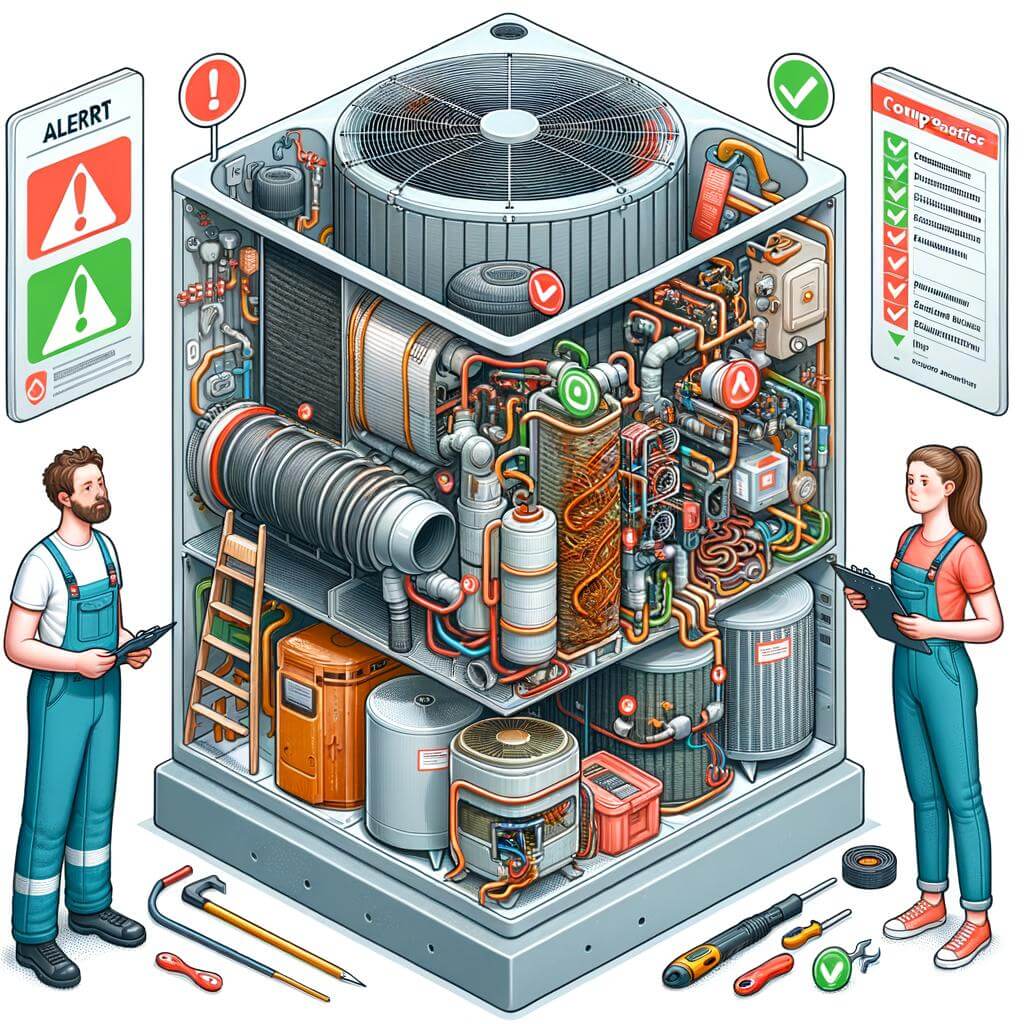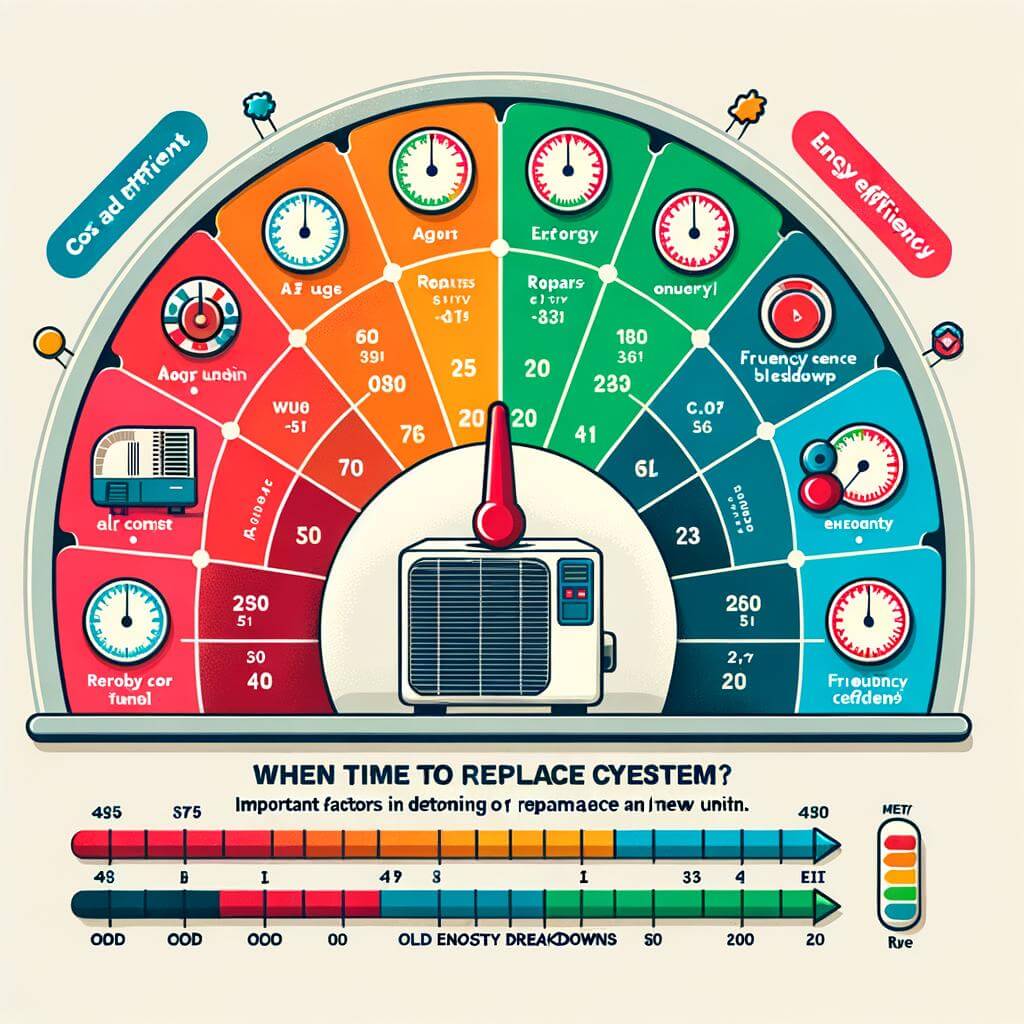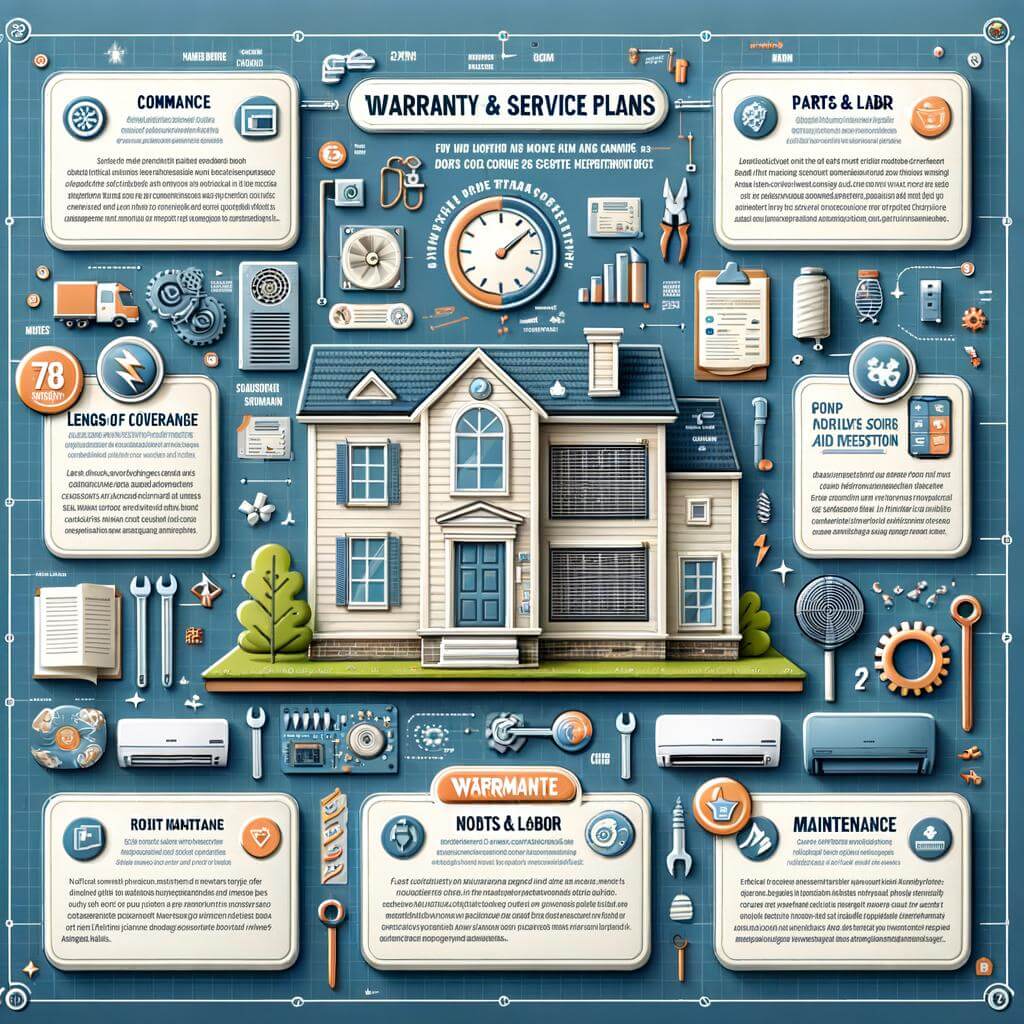Welcome! This post is created to help give you an in-depth understanding of the costs involved in replacing an AC system. Whether your current system is struggling or you’re considering an upgrade, weighing the costs can be overwhelming. This piece will help unravel some of the mysteries, listing out the potential expenses you might encounter. Not only will we cover cost, we’ll also shed some light on factors that can influence the overall price, providing a comprehensive guide based on expert insights and factual data. It’s designed to provide useful, practical information in a manner that’s easy to understand. So, whether you’re a building manager or a homeowner, you’ll gain the knowledge needed to make informed decisions about AC system replacement. We hope it helps you to efficiently plan and manage your budget, saving you from unexpected surprises down the line. Enjoy this educational journey towards being more aware and prepared!
Understanding the Need for AC System Replacement
As a homeowner, you may be hesitant to undertake a major expense such as AC system replacement. However, it is essential to understand that hanging onto an outworn system can end up costing more in the long run. A variety of factors necessitate the need for an upgrade or total replacement. Chief among them is efficiency. Older systems can guzzle up energy, leading to bloated utility bills. Modern AC systems are designed to conserve energy and function with enhanced efficiency. Thus, a new system could pay for itself in energy savings alone.
Furthermore, consider how the age and ongoing maintenance of your current system are affecting the living conditions in your home. An old or malfunctioning AC can lead to uneven temperatures, excessive noise, and poor air quality, all of which affect your living comfort. If repair calls are becoming frequent and costly, it might be more economical to replace the entire system. It’s also important to note that old systems may use refrigerants which are being phased out due to environmental concerns; replacing them with a new AC means you’ll be using a more eco-friendly unit.
Here is a breakdown of the potential costs that could trigger the need for an AC system replacement:
| Factor | Cost |
|---|---|
| Increased energy bills due to poor efficiency | $100-$200 extra per month |
| Frequent repair costs | $600-$1500 per repair |
| Upgrade to eco-friendly refrigerants | $400-$1200 per refill |
Remember, these are just estimates and the actual costs could vary. The objective here is not to scare you but to give you a reality check. Consider these factors when weighing the need for an AC system replacement. Talk to a professional to get a precise cost estimate and remember, a comfortable and energy-efficient home is a worthwhile investment.
Evaluating the Current Condition of your AC System
Before investing in a new air conditioning system, it’s essential to assess the current state of your existing unit accurately. By doing so, you can avoid unnecessary expenditures and ensure a comfortable living environment throughout the year. You might also discover other underlying issues that could influence your decision to replace or repair your current unit.
Efficiency Assessment: The first step in evaluating your AC system is to assess its efficiency. Pay attention to its cooling performance and energy consumption. If your unit is not cooling your home effectively or causing a surge in your energy bills, it may be nearing the end of its life. Further, keep an eye for indications of wear and tear such as excessive noise, constant need for repairs, and poor air quality.
- Thermostat inconsistencies: Are some rooms warmer or cooler than others?
- Air quality: This includes humidity problems and dust issues.
- Noise: An increase in noise could be a sign that your unit needs repairs or replacement.
- Repairs: If repairs are frequent and costly, it might be more cost-effective to replace the unit.
Here’s a simple table to guide you:
| AC System Conditions | Suggested Action |
|---|---|
| Poor cooling performance and energy efficiency | Consider Replacement |
| Excessive noise | Require Professional Inspection |
| Poor air quality | Require Repair or Replacement depending on severity |
| Frequent expensive repairs | Consider Replacement |
Bear in mind that the reasonable life span for most AC systems is typically around 10 - 15 years. If your air conditioner is within this age range and the repair costs are about half of the price of a new unit, you might want to seriously consider replacement. Always lean on professional advice to ensure that you make the informed decision always.
Determining the Right Time for AC System Replacement
Without a doubt, the most critical factor to consider when pondering about AC system replacement is typically its age and performance. On average, a high-quality AC system should serve you effectively for 10 to 15 years. However, if your AC system is over 10 years old and is often breaking down, it might be a strong indicator that a replacement is much needed. This is especially true if repair costs are amounting to over half the cost of a new AC system.
| Typical Signs for AC System Replacement | |
|---|---|
| Frequent Breakdowns | If your AC is constantly needing repairs, it might be more cost-effective to just replace it. |
| High Energy Bills | A failing AC system tends to work harder to maintain the desired temperature hence consuming more energy. |
| Inconsistent Temperature | If you’re experiencing uneven cooling or heating in different rooms that might be a sign that your AC system is aging. |
Moreover, energy efficiency is another key factor to consider. New air conditioning systems are designed to be much more energy efficient than older models. Subsequently, a new system could save you a significant amount in heating and cooling costs over time. If you notice that your energy bills are increasing despite regular maintenance, it might be worth considering an upgrade.
Lastly, another consideration is if the refrigerant in your old AC system is R-22 (also known as Freon). This refrigerant is being phased out by the U.S. federal government in order to conserve energy nationwide. As a result, the cost of Freon is rising and will continue to skyrocket. If your AC uses this type of refrigerant and is giving you trouble, it could be financially beneficial for you to switch to a new system.
In conclusion, deciding on whether to replace your AC system could be a complex decision involving various factors such as age of the current system, frequency of breakdowns, increase in energy bills and the type of refrigerant used. It’s always a good idea to seek professional advice before making the final decision.
Breaking Down the Costs of AC System Replacement
When it comes to replacing an AC system, it’s critical to understand what factors contribute to the overall cost. Typically, the budget for this endeavor splits into three categories: the price of the unit itself, labor charges, and any additional costs such as removing and disposing of the old unit, upgrading the existing electrical system, and potential ductwork modifications.
The AC unit price is often the largest portion of the replacement cost. The type, brand, size, and energy efficiency of the new AC unit greatly influence the overall cost. Here is a brief break down of how these factors might affect the prices:
- Type of AC unit: Central AC units tend to cost more than window or portable units.
- Brand: High-end brands usually carry a higher price tag due to their superior quality and performance.
- Size: Larger units designed for bigger spaces will cost more.
- Energy efficiency: High-efficiency units may cost more upfront, but they can save you money in the long run through lower energy bills.
Labor costs depend on the complexity of the job, length of the project, and the contractor’s hourly rate. A simple replacement might take 4 to 8 hours for a professional installer, and labor rates can vary greatly based on your geographic location. Additional costs can also add up, especially if there is a need for electrical upgrades or ductwork, which can sometimes double the amount of the AC replacement costs.
Refer to the table below for a rough estimate of AC replacement costs:
| Type of Cost | Estimated Cost |
|---|---|
| AC Unit | $3,000 – $6,000 |
| Labor | $1500 – $5,000 |
| Additional Costs | $500 – $2,000 |
Note that these figures are estimates and may vary based on specific circumstances. It’s always a good idea to get multiple quotes from different contractors to ensure you’re getting a fair price.
Dealing with Installation Costs: Professional vs DIY
Comparing Professional and Do-It-Yourself Installation
Diving into the financial implications of installing a new AC system, it’s crucial to factor in the installation costs. This can vary widely, depending primarily on whether you decide to go the professional route or take on the job yourself (DIY). It’s important to consider the pros and cons of each option while ensuring budget alignment.
Hiring a Professional
Going with a professional installation service can often seem like the more expensive route upfront. However, a professional can bring significant value in terms of expertise, time-saving, and potential long-term efficiency. This reassurance of correct installation can save you from future repair costs or issues relating to incorrect setup. Furthermore, a pro can provide specific advice on the best system for your home’s needs, certify the installation, and potentially offer warranties.
| Professional Installation Costs | ||
|---|---|---|
| Labour Cost | Equipment Warranty | Installation Time |
DIY Installation
DIY installation, on the other hand, is often viewed as the more budget-friendly approach, bypassing labour costs that come with hiring a pro. However, it bears a higher degree of risk if you’re not rigorously equipped with the right skills. The potential for mistakes could lead to system inefficiencies, reducing the AC’s lifespan or even making your home uncomfortable. Moreover, wrong installation may void the product warranty.
| DIY Installation Costs | ||
|---|---|---|
| Equipment Cost | Miscellaneous Tools | Time Investment |
Often, you’ll find that, in the long run, properly installed AC systems are more energy-efficient, saving you on energy costs, and can last longer, reducing the frequency of replacements. Hence, the decision between professional or DIY installation should always consider both upfront costs and the implications for long-term value.
Choosing the Right AC System: Insights and Recommendations
Purchasing an AC system for your home or office isn’t an expense to be taken lightly, it’s an investment with high initial costs, but meaningful long-term benefits. The ultimate decision is influenced by several factors; lifestyle needs, geographical location, space size, amongst others. The cost of an AC replacement isn’t restricted only to the price of the system but includes installation costs, considered to be the major part of an AC replacement expense, and ongoing maintenance costs. Installation costs can vary based upon the type of AC, the complexity of the setup, and the professional expertise of the installer. Maintenance costs, often overlooked, is an important consideration to keep your system functioning optimally.
While choosing the right AC system, few major types to consider include central air conditioning, ductless Mini-Split, window AC, and portable AC. Each comes with unique advantages and associated costs. Central air conditioning, for example, is an excellent choice for large homes but comes with higher installation costs, while window AC’s are ideal for single room cooling.
Research the various types of AC systems and the associated costs thoroughly to ensure that your final choice aligns with your overall budgeting and cooling requirements. It is also essential to consider the cost of potential AC repairs, longevity, along with energy efficiency to fully understand the true owning cost of an AC system. Work with reputable HVAC professionals to get accurate cost estimates to allow for knowledgeable decision-making.
Maximizing Cost Efficiency: Tips to Save on AC System Replacement
When it comes to your AC system, a replacement can represent a considerable investment. As with any significant purchase, it’s crucial to take a careful approach to ensure that you get the maximum value for your money. In this section, we’ll delve into some crucial factors to consider when planning an AC system replacement, and how to save on the cost.
Consider the Season: Opting to replace your AC unit during offseasons can help you land a reasonable price. HVAC companies often offer discounts during their less busy periods, such as fall and spring. The extra bonus? You avoid the heat waves that often accompany peak AC replacement season.
Energy Efficiency: Energy-efficient models might cost a little more upfront, but they can save you substantial amounts in the long run. Look for an Energy Star-certified unit — these are tested and proven to be more efficient, therefore creating less overall energy consumption, which shows up as savings on your monthly bill.
Professional Quotes: It’s a good idea to get quotes from at least three different providers. This gives you an overview of the average price for AC replacement and helps you avoid overpaying.
| Component | Cost-saving Strategy |
|---|---|
| Season of Replacement | Opt for off seasons to avail discounts |
| Type of AC Unit | Choose energy-efficient models for long term savings |
| Professional Quotes | Get quotes from multiple providers to avoid overpaying |
While it’s important to keep these cost-saving ideas in mind, remember that the cheapest solution is not always the best. For something as pivotal to your comfort as an AC system, you’ll want to ensure you’re getting a high-quality, reliable unit, while also making sure the installation is handled competently.
Understanding Warranty and Service Plans for Your New AC System
When you are investing in a new AC system, an important factor to consider is the warranty and service plans available. These ensure that you will get the most out of your investment and provide peace of mind knowing that you are covered in case anything goes wrong. Typically, AC system warranties cover parts and labor for a certain length of time. Some may even offer extended warranties that provide additional coverage.
On the other hand, service plans generally include regular maintenance check-ups, and often offer discounted rates on repairs. Many plans offer 24-hour emergency service, ensuring you won’t be left in the heat should your AC breakdown during off hours. Let’s discuss further:
- Standard Warranties: These are usually included in the purchase of your AC system, and cover parts for a defined period, typically around 5-10 years. However, labor costs for repairs are often out of pocket.
- Extended Warranties: These are extra options that you can purchase, extending the coverage of your standard warranty. They often cover both parts and labor costs.
- Service Plans: These are essentially maintenance contracts. They include regular check-ups and often discounts for repairs, ensuring that your system remains at peak performance.
Make sure to compare the coverage of different warranties and service plans. Below we present a simple comparison table for better understanding:
| Coverage Type | Parts coverage | Labor coverage | Maintenance Included |
|---|---|---|---|
| Standard Warranty | Yes | No | No |
| Extended Warranty | Yes | Yes | Depends on the Plan |
| Service Plan | Depends on the Plan | Depends on the Plan | Yes |
Getting the Most Out of your New AC System: Effective Maintenance Tips
Investing in a new AC system can be a substantial expense, so it only makes sense to get the most out of your investment. One effective way to do so is by adopting disciplined, consistent maintenance habits. Regular maintenance keeps your AC system running smoothly and efficiently, which in turn prolongs its lifespan and helps you avoid costly repairs or replacements.
- Regular inspections: Have a professional conduct regular inspections at least once a year. They can identify any potential issues early and tackle them before they become major problems.
- Regular filter changes: Replace or clean your air filters regularly to maintain optimal airflow and indoor air quality. Clogged filters put a strain on your system and can lead to unnecessary wear and tear.
- Keep your outdoor unit clean: Ensure that the area around your outdoor unit is clear of debris and vegetation that can impede airflow.
- Regular professional maintenance: Even with diligent daily care, your system needs professional maintenance to maintain peak efficiency. Technicians will lubricate moving parts, check refrigerant levels, and ensure all components are in good working order.
Understanding the breakdown of costs when it comes to AC system replacement can help you strategize your maintenance and even determine when replacement becomes a more cost-effective option. Below is a general estimate of the costs associated with AC system replacement.
| Cost Component | Average Cost |
|---|---|
| AC Unit | $2,500 – $7,500 |
| Installation Labor | $500 – $2,000 |
| Additional Parts | $200 – $500 |
| Disposal of Old Unit | $50 – $200 |
| Total Cost | $6,250 – $12,200 |
AC system replacement costs can vary significantly based on factors such as the brand and model of the unit, the cost of labor in your area, and the complexity of the installation process. Regular maintenance can potentially save you thousands by helping you avoid the need for premature replacement.
Wrapping Up
In conclusion, no one wants to face the potential costs associated with AC system replacement, but understanding what those costs might entail is a crucial step towards effective financial planning. Factors like unit size, installation complexity, and energy efficiency ratings can all affect the final price. While dedicating resources to regular maintenance can sometimes prevent the need for a full replacement, in case that becomes inevitable, having an awareness of the potential costs ensures that you are well-prepared.
Just remember, cheaper isn’t always better. Often, investing in a high-quality, energy-efficient unit will save you money in the long run through reduced utility bills and fewer repair costs.
Making the right choice for your AC system replacement will require carefully weighing your options, seeking expert advice, and considering your long-term comfort and energy savings. As with any major home decision, information is power, and being equipped with knowledge and understanding about AC replacement is one of the best ways to safeguard your comfort and your wallet.
We hope this article has shed light on some important considerations and made your path a bit easier. Remember, in the process of replacing your AC, it’s not just about surviving the heat, but about making a decision that benefits you in the long term. Stay cool!












